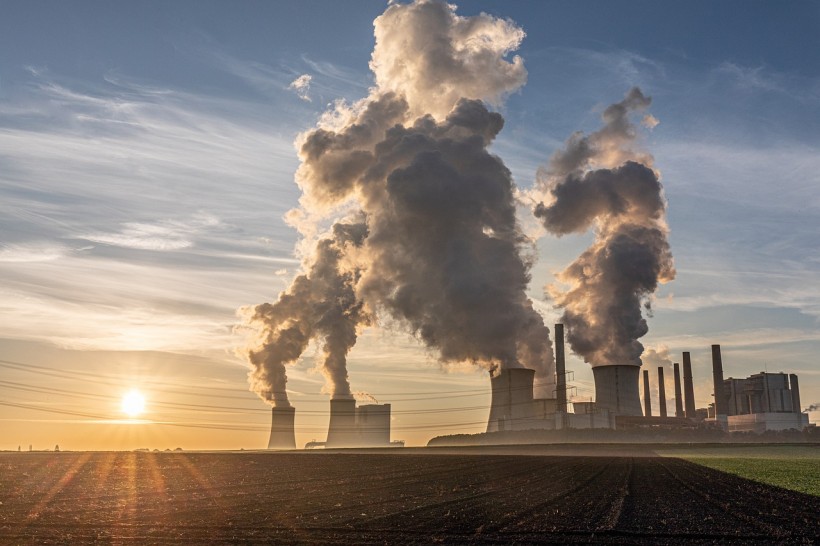With climate change becoming more and more of a concern for individuals and governments alike, many of us are looking for new ways to reduce our impact on the environment. The primary cause of the climate crisis is our excessive production of carbon dioxide, with the United States alone producing an average of 5.27 billion tonnes of CO2 a year. The best way for people to reduce their effect on the environment is therefore to reduce their output of CO2 or their carbon footprint. While there are countless ways you can go about doing this, here are a few simple ones that can make your lifestyle more environmentally conscious.
Install Solar Panels in Your Home
One of the largest producers of carbon dioxide in the world is the burning of hydrocarbons, commonly known as fossil fuels, to provide us with energy for heating, electricity, and hot water. In fact, heating and electricity alone are responsible for nearly a third of all carbon emissions. One way you can do this is by hiring a solar panel installer. This will allow your home to rely nearly entirely on emission-free, clean energy. The upfront costs for doing this can be expensive, but, due to the environmental benefits, many governments will subsidize this. What's more, the savings you can make on energy bills will quickly outstrip the price of the installation.
Reduce Plastics Use
The manufacturing of plastics is another substantial source of harmful carbon dioxide emissions. Plastics also take thousands of years to decompose, and as such, often end up in oceans, destroying entire habits and ecosystems. Naturally, therefore, reducing your plastic consumption is a great way to reduce your carbon footprint, as well as your overall impact on the environment. There are a number of ways you can achieve this. For example, you can minimize your use of single-use plastic bags, and reuse them where possible. You can also purchase certain groceries, such as pasta and rice, from refill stores, which allow you to cut out packaging entirely. When you have to use it, recycled plastic is preferable, but the recycling process can also negatively impact the environment. It is consequently a good idea to avoid using any plastics when you can.
Insulate Your Home
As mentioned earlier, the energy required for heating is one of the largest causes of CO2 emissions. You can therefore reduce your fuel consumption radically by insulating your home if it has not been done so already. This will increase your home's heat retention, meaning you will not need to utilize your home's central heating nearly as much. Like with solar panels, this can also lead to substantial savings on energy bills. On a similar note, replacing your windows with more energy-efficient ones can further reduce your reliance on central heating.
Purchase Energy-Efficient Electrical Products
Surprisingly, electronic products, such as white goods, computers, and televisions, can vary hugely in their consumption of electricity. If you carry out research beforehand, you can therefore save on energy use and reduce your carbon footprint by buying more energy-efficient products. Many countries now also mandate companies to publicly state the energy performance of their products, so it is easy to make an informed decision. Specifically, try to look for goods with a high energy star rating.
Buy Locally Sourced Food
Outside of energy generation, agriculture and food production is one of the other major causes of carbon emissions. A large portion of this is also associated with the transportation of produce. Fresh food from local farmers closer to home thus has a much smaller carbon footprint than mass-produced produce. Local, independent farmers also tend to use less industrial farming methods than larger ones, which have a much smaller impact on the environment. Unfortunately, locally sourced food is often markedly more expensive than other produce. Therefore, if cost is a major concern for you, you might want to start by just purchasing a few of your weekly items from local producers.
Buy Clothing Sustainably
Like agriculture, the clothing industry, in particular, is one of the leading producers of carbon dioxide. This has been exacerbated in recent years by the fast fashion industry, which has both dramatically increased the manufacturing rate and waste in the industry, placing further pressure on the environment. This is also to say nothing of the deplorable conditions many who work in the textile industry are exposed to. It is consequently worth considering these factors when next buying clothes. If possible, you should try to only purchase clothing when needed, seek to buy second-hand, and look for clothes made to last.
Reduce Your Car Use
Cars are yet another well-known producer of pollutants and emissions. However, they still, unfortunately, remain a necessity for many of us. But, this does not mean you can't find creative ways to reduce your car use to only essential purposes. Cycling to work, for example, can dramatically decrease the amount you need to use your car and comes with a host of health benefits. You may also be surprised that many of your car trips can be carried out via public transport, which is much more energy-efficient. If you currently need to buy a new car, you may also consider looking for a hybrid or electric vehicle.
Think About Lighting
A place where you might find you can save a lot on your energy usage, and thereby your carbon footprint, is your home's lighting. Lightbulbs can vary widely in their energy consumption, and traditional halogen bulbs especially are very inefficient. Replacing these with LED lighting can thus make your home much more eco-friendly. It also pays to be conscious about switching your lights off when you are not using them.
Adjust Your Diet
Dietary changes can also have a significant positive impact on your carbon footprint. Global overconsumption of red meat, specifically, is partially to blame for the current climate crisis. This is largely because raising animals for food requires huge amounts of fossil fuels to produce their own feeds, as well as the fact that they produce large amounts of methane. You may therefore consider reducing the amount of animal products in your diet.
© 2024 NatureWorldNews.com All rights reserved. Do not reproduce without permission.
* This is a contributed article and this content does not necessarily represent the views of natureworldnews.com





![Great White Sharks Observed for the First Time Changing Their Behavior in Different Marine Environments [Study]](https://1471793142.rsc.cdn77.org/data/thumbs/full/70251/280/157/50/40/great-white-sharks-observed-for-the-first-time-changing-their-behavior-in-different-marine-environments-study.jpg)
